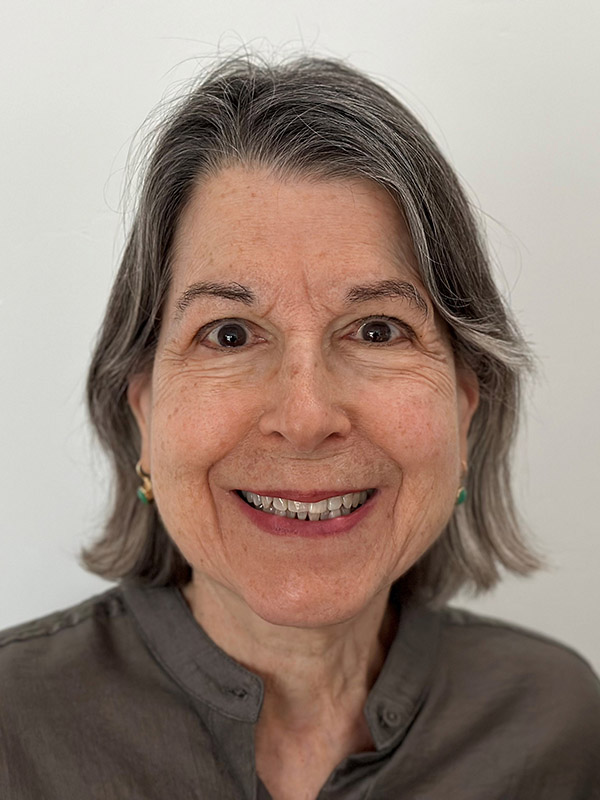
“It is unusual for an outstanding clinician to reach so deeply into teaching, clinical research, and finally NIH clinical research leadership,” wrote Sten Vermund, M.D. ’77, when he nominated Dr. Esther Eisenberg for Einstein’s Dominick P. Purpura Lifetime Achievement Award. “Exhibiting the highest standards of ethics and dedication, Dr. Eisenberg is a role model for all of us in the Einstein community.”
Dr. Eisenberg’s medical journey began at Einstein, where she received her M.D. degree. She completed a residency in obstetrics and gynecology at Tufts University School of Medicine and went on to become a professor of obstetrics and gynecology (now emerita) at the Vanderbilt University School of Medicine, where she directed the division of reproductive endocrinology and infertility and earned an M.P.H. in epidemiology. (It was at Vanderbilt that her path crossed with that of Dr. Vermund, a pediatrician and infectious diseases expert.)
Over her long career, she has served as a medical officer in the Fertility and Infertility Branch and the director of the Reproductive Medicine and Infertility Program at the National Institute of Child Health and Human Development (NICHD), part of the National Institutes of Health (NIH). She organized and directed one of the country’s first programs for in vitro fertilization at Pennsylvania Hospital and served as a project scientist at the Reproductive Medicine Network, a cooperative multicenter clinical trials network.
Dr. Eisenberg, why did you decide to study medicine?
Dr. Eisenberg: “Number one, I’m the child of Holocaust survivors, so I think that opportunities that were lost for my parents were put on their children. And I decided to go into medicine because I wanted to make the world a better place. I always liked science, people, and medicine. In the 1970s, women really weren’t a presence at medical schools. I was advised to go not to medical school but into a health-related profession, so I was studying to become a dietitian. My husband was working at Cornell Medical School, and his advisor, a doctor, took an interest in me. He said, ‘Esther, these are the courses you need for medical school, you can go.’ I said, ‘But then I can’t have a family,’ and he said, ‘Sure you can. I’m a doctor, my wife’s a doctor, we have a family.’ I couldn’t sleep that night, because suddenly everything was turned upside down. He gave me permission to do what I wanted to do.”
What mentors at Einstein helped you in your career?
“Einstein was ahead of other schools in terms of admitting women, but mentorship wasn’t really developed then. People rarely took you aside to talk to you. But I remember during a sub-internship in my last year, Dr. Olga Silvay was an oncologist at Montefiore, and she was smart, personable, optimistic—a wonderful role model.”
How did your experience at Einstein influence your career?
“I got to sample all the subspecialties, and after that, I felt that I was best suited for internal medicine or ob/gyn because you got to solve diagnostic dilemmas, which I love. I finally chose ob/gyn because those doctors seemed happiest.”
What professional accomplishment are you most proud of?
“Being project scientist of the Reproductive Medicine Network at the NIH. It was a large multicenter clinical trial network. We studied women with polycystic ovary syndrome and couples with unexplained infertility and looked at how obesity influenced treatments for infertility. These and other conditions were being treated empirically without scientific answers, and we advanced the field.”
What advice would you have given yourself in medical school?
“I would have said, ‘You can do it.’ We talk about the imposter syndrome now and how people don’t feel they deserve to be where they are, and that’s absolutely not true. You can do anything. But you can’t do everything. Teamwork and collaboration are critical. You need a group of people all moving in the same direction to help patients and advance science.”
Dr. Eisenberg has authored more than 175 publications, including the book Hysterectomy: Exploring Your Options, and has received, among many other honors, the Award for Collaborative Excellence from the Vanderbilt University Medical Center and the NICHD Outstanding Mentor Award.
2024 Alumni Awardees